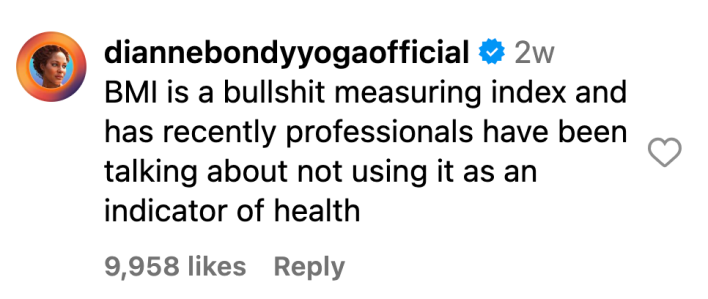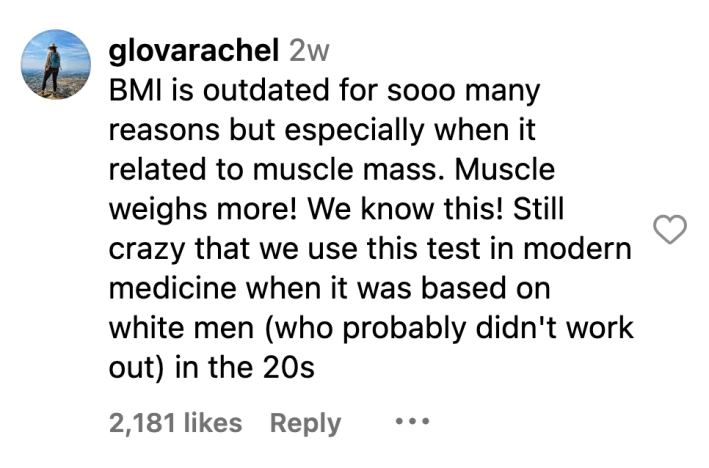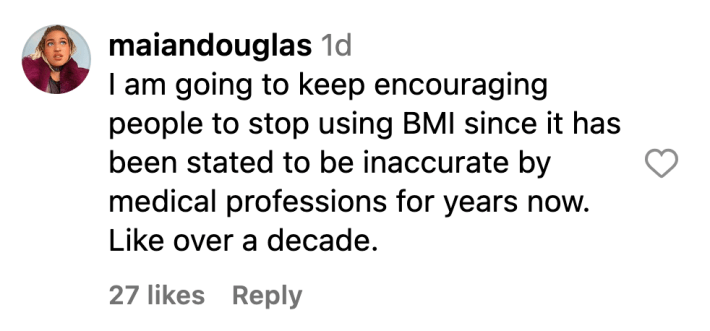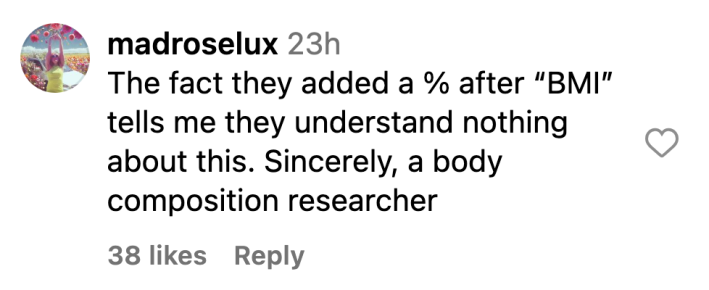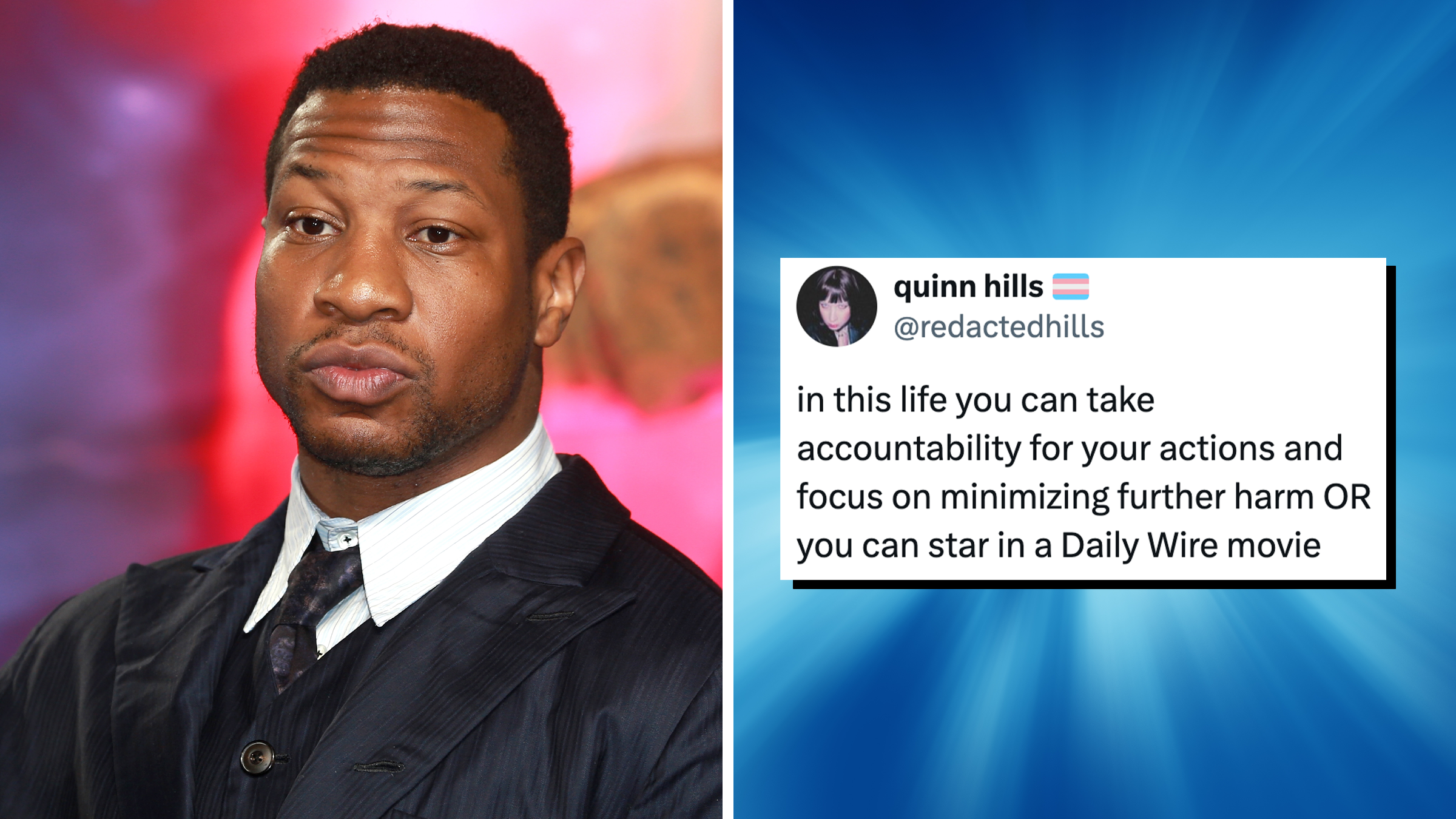USA rugby star and Olympian Ilona Maher took the time to call out a commenter body-shaming her to educate viewers about the limitations of BMI as a body weight scale in a video earlier this month.
Ilona Maher responds to criticism of her BMI in a viral video
Ilona Maher’s July 10th post about BMI came on the heels of a commenter trying to shame her for her weight, specifically citing the body mass index (BMI for short).
“I bet that person has a 30% BMI,” wrote one commenter, who has since deleted their account.
The Olympic athlete took the opportunity to expose common misconceptions about BMI’s usefulness in telling if someone is overweight or underweight with a simple equation of your weight divided by height squared.
What this doesn’t take into account, according to the Patient.info website, is a person’s muscle mass, age, and a plethora of other factors that can impact their weight.

The 27-year-old professional athlete said in response to a comment, “Hi thank you for this comment, I think you were trying to roast me, but this is actually a fact. I do have a BMI of 30. Well, 29.3, to be more exact. I’ve been considered overweight my whole life. In middle school, elementary school, high school, I was always considered overweight.”
“I remember vividly one time in high school, I had to turn in the physical to the office, and right at the bottom of the page, it said, ‘overweight.’”
“And I was so embarrassed to turn that in and to have that written there. So my whole life, I’ve been this way. I chatted with my dietician because I go off of, you know, facts, and not just what pops up here, you know,” she said with a laugh as she tapped her head. “Like you do.”
“And we talked about BMI. And we talked about how it really isn’t helpful for athletes. BMI doesn’t tell you much. It just tells you what your height and weight [are] and what that equals. I’ve said it before, I’m 5’10” 200 pounds. And I have about, and this is an estimate, but about 170 pounds of lean mass on me. Do that math in your head. You probably can’t.”
“That’s pretty crazy, right? And that BMI doesn’t really tell you what I can do. It doesn’t tell you what I do on the field, how fit I am. It’s just a couple numbers put together. It doesn’t tell you how much muscle I have or anything like that,” Ilona explained in her video. “So…yeah. I do have a BMI of 30. I am considered ‘overweight.’ But alas, I’m going to the Olympics, and you’re not.”
Ilona Maher is a big proponent of body positivity and often posts messages related to the topic.

BMI according to the experts
The body mass index was first created by Belgian statistician, mathematician, and astronomer Adolphe Quetelet in 1832, with its modern use as BMI established by physiologist Ancel Keys in 1972. This index was meant to find the quantifiable characteristics of the “normal man,” according to a paper published by Rachel Pray and Suzanne Riskin in Cureus: Journal of Medical Science in 2023.
According to BMI, a score of less than 18.5 is underweight, 18.5 to 24.9 is a “normal” or “healthy” weight, 25-29.9 is overweight, and 30 or more is obese. This would put athletes like Ilona Maher squarely in the overweight to obese category, even though they are considered the epitome of athleticism.
There have been numerous articles and papers published in recent years worldwide discussing the inaccuracy of BMI as an index for adolescents, pregnant people, athletes, and the elderly, as well as the potential “traumatizing” effects of the index on people’s mental and physical health.
Dr. Rexford Ahima is a professor of medicine, as well as the director of the obesity unit at the Institute for Diabetes. In a 2022 Medical News Today article, he said, “There is an urgent need for accurate, practical, and affordable tools to measure fat and skeletal muscle, and biomarkers that can better predict the risks of diseases and mortality.”
“Advances to improve the measurement of obesity and related factors will help determine the optimal weight for an individual,” he went on, “taking into account factors such as age, sex, genetics, fitness, pre-existing diseases, as well novel blood markers and metabolic parameters altered by obesity.”
Reactions to Ilona Maher’s BMI video
Reactions to Ilona Maher’s BMI video on Instagram were overwhelmingly positive, applauding her stance on weight and body positivity in general, as well as her meme-like riffs on the commenter. Many of those commenting are professional athletes themselves, from American Rower Molly Bruggeman to American Olympic bobsledder Elana Meyers Taylor and many more.
